Your diffuser manual tells you to add distilled water to your diffuser. Distilled water can get pricey. Can you just use tap water instead?
Distilled water or tap water, which one is better for your diffuser? Keep reading to find out!
Contents
Should You Use Distilled Water Or Tap Water In Your Diffuser?
This is the old-aged question we’ve all been wondering. Unfortunately, there isn’t a cookie-cutter answer to this question.
You can use distilled water and tap water in your diffuser. But which one SHOULD you use? Below are the arguments that are for and against distilled water and tap water.
Distilled Water Argument
If buying distilled water is a normal routine in your household, using distilled water in your diffuser is easy to do. Here are the arguments for and against distilled water.
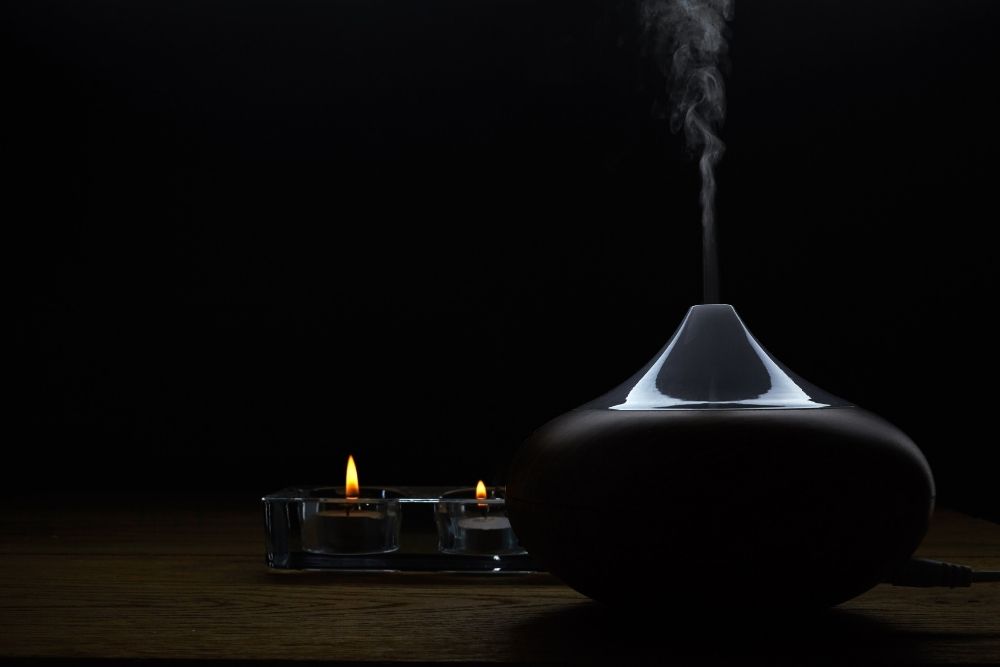
FOR Distilled Water
Distilled water is the purest source of water that’s free from impurities and minerals. You don’t have to worry about inhaling impurities from the water vapor.
AGAINST Distilled Water
Distilled water is super expensive water to be used in a diffuser. Also, the mineral-less water doesn’t evaporate as well.
Tap Water Argument
If you live out in the country and get your water from a well, it’s easier and cheaper for you to just use tap water. Here are the arguments for and against tap water.
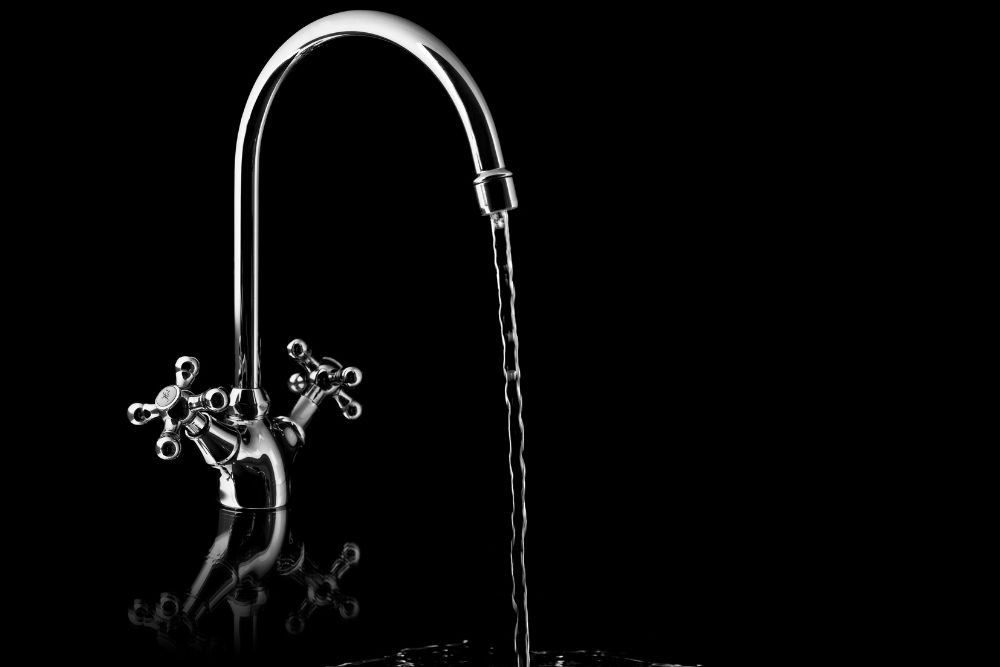
FOR Tap Water
The natural minerals in tap water allow essential oils to hold onto the particles and disperse them into vapor better than distilled water can. It’s a cheaper option compared to distilled water.
AGAINST Tap Water
Diffusing tap water in your diffuser releases harmful chemicals, like fluoride. Also, mineral build-up happens faster with tap water, requiring you to clean your diffuser more frequently.
On a personal note…..
I’ve been using tap water for years in my diffusers, and I don’t have any issues cleaning them. I also buy average and cheaper priced diffusers and I don’t have a problem buying a new one every few years.
I’m not sold on the “harmful chemicals” argument because tap water is consumable. I drink tap water every day and haven’t gone to the doctor’s office once.
If you don’t run off city water, then test your well water annually. If you test your tap water every 6 months, harmful chemicals shouldn’t be a problem.
Distilled Water vs Tap Water Pros & Cons
| PROS | CONS | |
| Distilled Water |
|
|
| Tap Water |
|
|
Is There An In-Between Option Or An Alternative?
Yes! If distilled water is too expensive and you think tap water has too many minerals, a great in-between option is filtered water.
Filtered Water In Diffusers
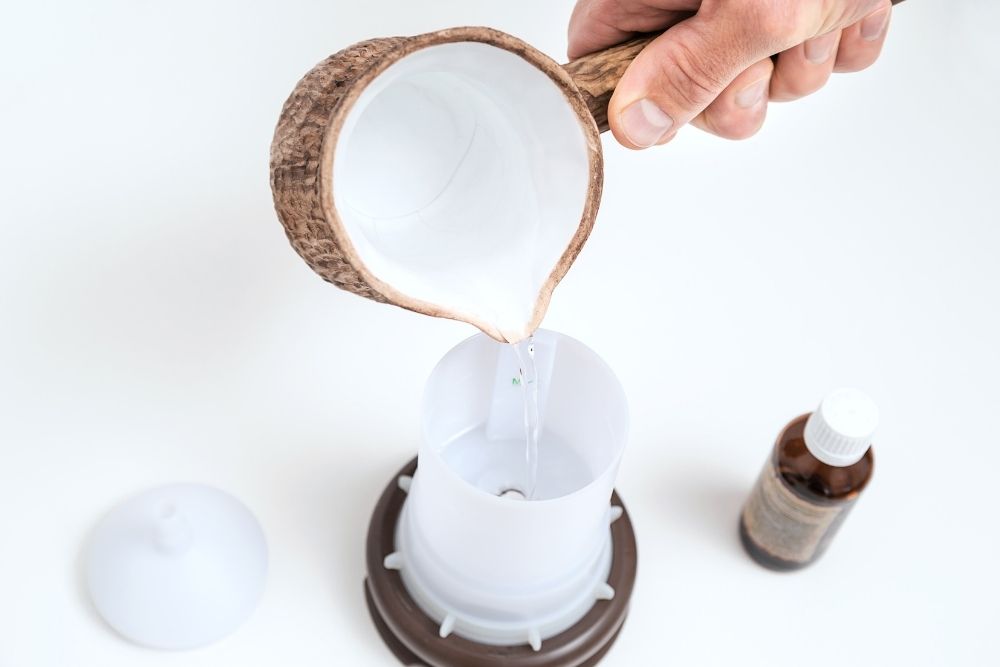
Putting filtered water in a diffuser is relatively inexpensive and the low mineral content makes it easier on your diffuser. It’s also way easier to clean!
For a lot of people, filtered water is a great alternative to expensive distilled water and excessive mineral build-up from tap water. This is a great balance between the two.
Waterless Diffuser
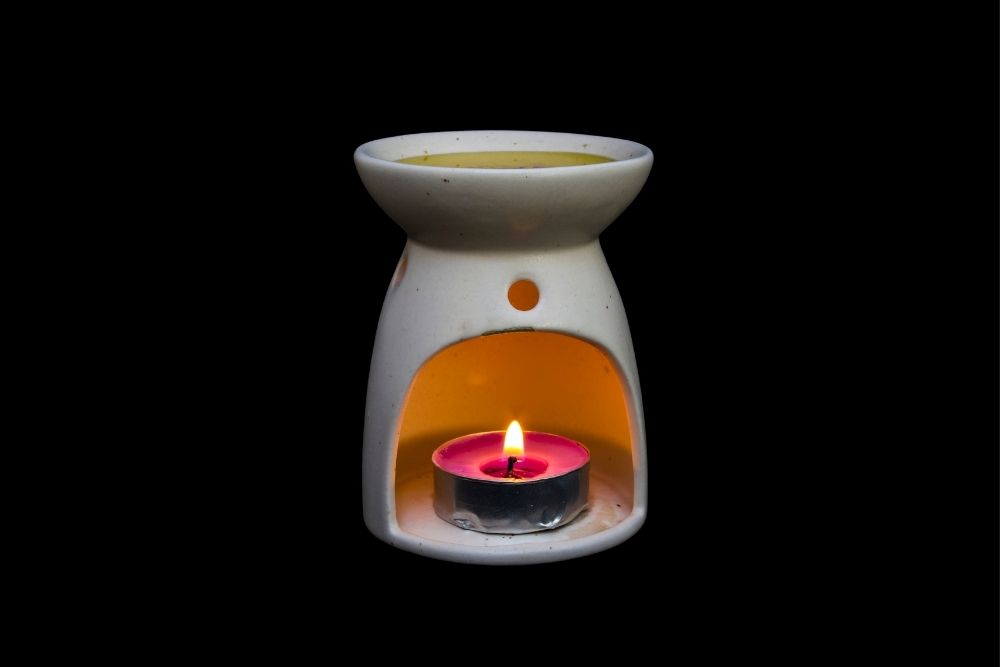
If you still aren’t sure what type of water to use for your diffuser, then maybe buy a waterless diffuser. Yes, there is such a thing!
Check out this article, “Waterless Diffuser vs Water Diffuser,” to learn more about the differences between the two. We also give you a handful of options to choose between.
Examples Of Diffusers That Use Different Types Of Water
To give you an idea of what types of diffusers take what types of water, we’ve compiled a shortlist to give you an idea.
Distilled Water Diffusers
- Young Living Ultrasonic Desert Mist Diffuser
- Young Living Aria Ultrasonic Diffuser
- ASAKUKI Ultrasonic Aromatherapy Diffuser
Tap Water Diffusers
- Young Living Dew Drop Ultrasonic Diffuser
- Young Living Rainstone Ultrasonic Diffuser
- Innogear Essential Oil Cool Mist Humidifying Diffuser
Distilled Water Or Tap Water Diffusers
To see a thorough comparison between the Desert Mist diffuser and Dew Drop Diffuser, check out this article, “Comparing Dew Drop vs Desert Mist Diffuser.”
If you choose to put tap water in your diffuser, then you’ll definitely need to know the importance of frequent cleaning and how to clean your diffuser properly. A great article to help you with this is, “How Often Should I Clean My Essential Oil Diffuser.”
The Verdict…
Distilled water vs tap water: Which one is better for your diffuser? The final verdict is to follow the recommended type of water for your specific diffuser.
Though ultimately, it’s your diffuser and you can decide what type of water you want to put in it. Just know the pros and cons before choosing your water type.
Following the company’s recommendations will also prevent your diffuser’s warranty from being voided. If you own a more expensive diffuser, you’ll definitely want to hold onto that warranty!
In Summary
The best type of water for your diffuser will be recommended by the manufacturer of your specific diffuser. If warranties aren’t a big deal to you, then decide which type of water works best for your situation.
Sweet you’ve made it to the end! Whether you go with distilled water, tap water, filtered water, or a waterless diffuser, the decision is up to you.

I currently work as a medical receptionist, but my ultimate goal is to work as an occupational therapy assistant. Helping others achieve a better quality of life is something I’m after. That’s one of the main reasons I started this blog. Learn more about me.
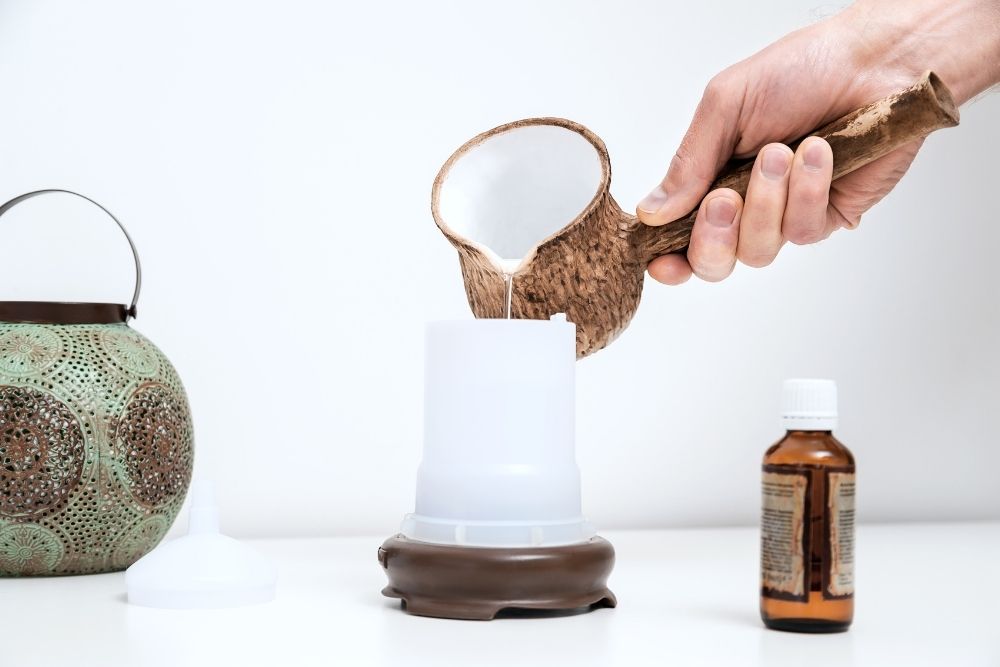



Paris Parsons
Tuesday 28th of June 2022
Great article - thank you! We only drink distilled in my household (both for purity & amazing taste) but it does not didfuse well. The aroma is weak & flat... comparable to the aroma after 3 hrs. I wanted to also comment on the harmful chemicals in water. I used to have the same opinion - it's obviously safe to drink so how bad can it be to breathe right? Wrong. Geography plays a role here as well as the efficacy of ones local water management dept. I was appalled to learn that the MAJORITY of cities REGULARLY test above the threshold for harmful chemicals. They aren't required to shut down but rather gain compliance. Compliance is typically just at the threshold bc of cost/budgets etc....
WHAT'S WORSE- thresholds are set WAY too high- often dictated by way outdated research.
Much like our FDA, the philosophy tends to be- we know research has been proving for yrs that said exposure is unhealthy.....but we'll leave said policy/practice in place until someone can prove in court that their ailment was caused by said exposure or once the law forces charge. More often than not, this takes 50+ yrs and requires victims to have the $$ and energy to pursue a lawsuit. (Think Roundup)
As far as exposure - it's not so much the immediate effects but rather the longer term effects. (Like Roundup)
Plus, respiratory exposure can often be more harmful than ingestion.
It's unlikely diffusing tap water is going to push us all over the edge! But all exposure adds up.